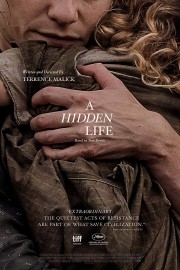A Hidden Life
Terrence Malick has never really been a major filmmaker for me personally. “A Hidden Life” may be my favorite film of his, however. Here is a nearly 3-hour epic, told almost exclusively from the perspective of two individuals, about a family changed by one choice that, we would think, is a simple one, but which is not that simple when we come to think about it.
The film tells the story of Franz Jagerstatter, an Austrian farmer who, in 1940, is called to serve in the German army, and finds the experience deplorable, and decides, if he is called again, he will not serve. He cannot bring himself to serve in Hitler’s army, and swear allegiance to this evil man. A few years later, the call comes, and he refuses to fight. He ends up in prison, and his wife is ostracized by their town. Meanwhile, he languishes in jail, as they try to get him to swear an oath to Hitler; maybe he can work at a hospital. But he cannot bring himself to do so, and it’s a matter of time before Franz and his wife, Franziska, are reunited; what needs to be determined is how that reunion will take place.
Malick is a director of rapturous vision and imagination. Even if his films do not really impact me emotionally the way they do others, there’s a craft in the cinematography and music in his films that make them unforgettable, nonetheless. Here, his cinematographer, Joerg Widmer, has camera angles and landscapes we are familiar with in Malick’s filmmaking, but the German countryside he filmed this movie is striking to behold, with a score by James Newton Howard that brings the movie to amazing emotional levels we would not expect from such an intimate narrative. Whether you’re a fan of a Malick film or not, cinematography and music will go hand-in-hand to create a powerful experience.
The narrative is where “A Hidden Life” really succeeded with me. August Diehl as Franz and Valerie Pachner as Franziska give performances that snap us back into the story even if Malick’s vision seems to stray into an ethereal screensaver, at times. They provide the inner thoughts of these characters, as well as reading letters the couple write one another while they are apart. These are detailed and meticulous performances that carry the film through its running time, which I did not notice, most of the time. They are what I take away the most from Malick’s film; that’s not necessarily the case most of the time.










